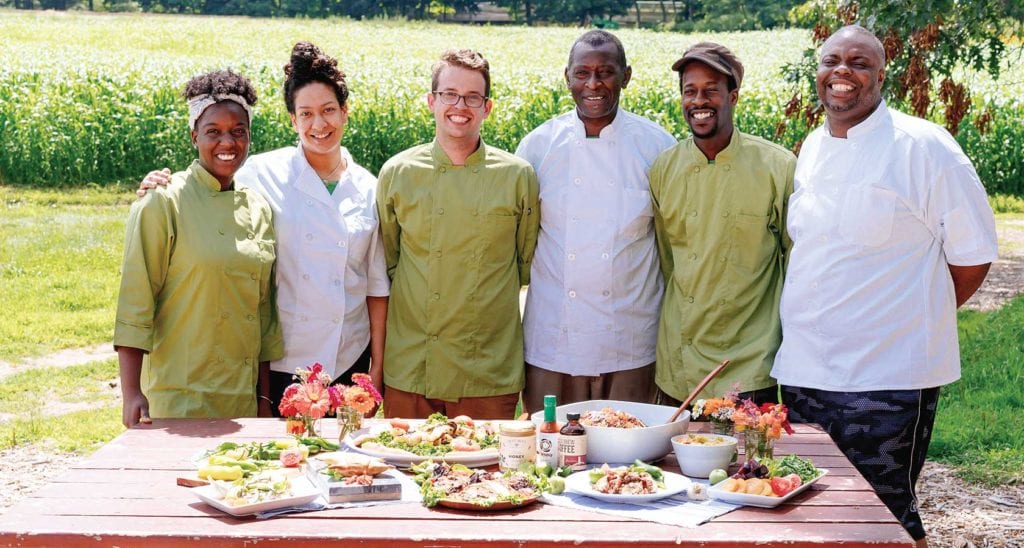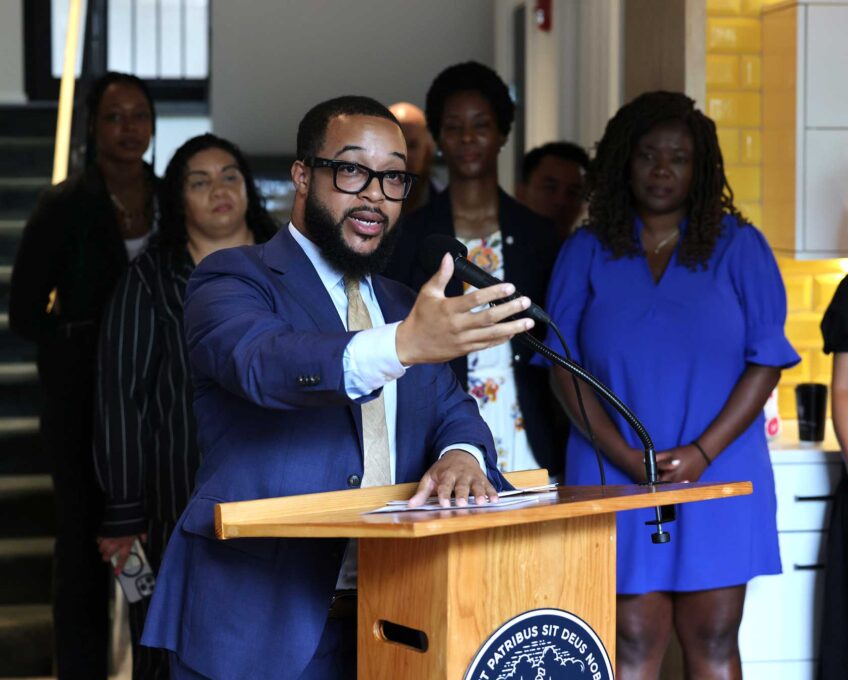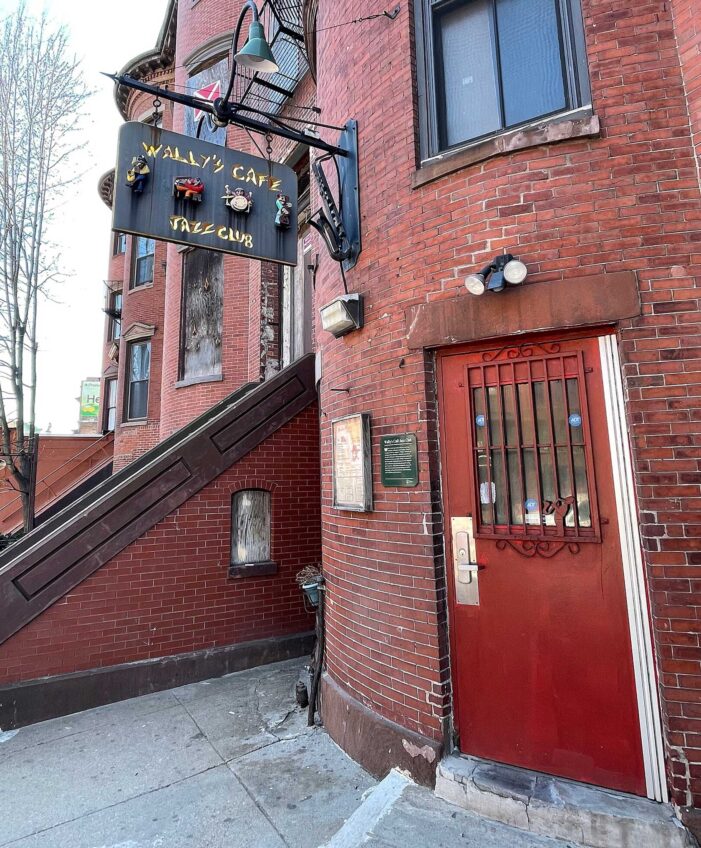Expanding a fresh food business
Armed with business plan, food truck entrepreneurs seek restaurant space

When Cassandria Campbell and Jackson Renshaw opened their food truck Fresh Food Generation in 2015, it was just that: a food truck.
Since then, their business has expanded to include catering and a cafe space at the DotHouse Health Center in Dorchester, enabling the duo to bring fresh, local, healthy food beyond Dudley Square where they started.
“I remember when we were first starting out, I was really excited to get two orders in a week for 30 people each,” said Renshaw in an interview with the Banner. “Now, we’re feeding roughly 500 to 600 people in our busiest day, and roughly 2,000 people a week.”
The truck opened in summer of 2015 with the mission of bringing affordable and sustainable food options to Roxbury. The two owners met while working at the Food Project, a local urban farming initiative, and developed their business plan through a six-month business accelerator program at the Future Boston Alliance.
At first, the truck was in Dudley Square three days a week, and they subsidized their low-priced menu options with proceeds from the higher-priced catering business for corporate clients, while keeping a low profit margin in order to maintain the affordability that customers in the area were used to from other food trucks and restaurants.
The duo was able to make connections with local organizations that have missions similar to their own while working in Dudley Square, and because of that, were soon recommended to run the cafe at DotHouse Health. As early as year two of their business operation, they were selling to customers there five days a week.
“People can step right out of their doctor’s office and into our cafe, and be encouraged to try something that they normally wouldn’t eat, or something healthier than they would eat normally,” Campbell said. “Instead of going to McDonald’s, you can come to us, and it’s a lot healthier for you.”
Campbell said that the entrepreneurs have had some surprises in their experience with the cafe, including having their kale salad be a best-seller, something they never would have expected when they opened. Also, they’ve noticed customers switching from asking for fountain sodas, as was common when they started, to seltzer water and healthier alternatives.
They’ve also had people ask at their food truck where the restaurant is — something that Campbell and Renshaw hope to be able to answer soon, with dreams of opening a brick-and-mortar space next year, once they find a suitable location.
“I think we’re part of a larger community conversation happening in Boston right now, specifically Dorchester, Mattapan and Roxbury. I’ve seen a lot of businesses open up recently that want to offer healthier food options,” Campbell said. “It’s really exciting, and I think people have been wanting this for a long time. I think it’s something our communities need to feel good, raise their families, to make sure we’re all healthy.”
The team is very intentional, Renshaw said, about sourcing their food locally and choosing sustainable options for plates and silverware, but also about supporting their employees. The business recently started offering 401(k) plans, something fairly unusual in the industry, and also offers employees and chefs access to management trainings and culinary workshops to help them develop their skills. Fresh Food Generation also makes sure that all its employees have food safety certifications, something that usually is required only for chefs.
As they look to expand their business even more, Renshaw and Campbell will soon begin offering online ordering, which will allow them to increase capacity and efficiency for their customers. They will also be bringing their truck to farmers markets throughout the summer, including at Fowler Clark Epstein Farm in Mattapan, the source of some of their produce.
While the business has expanded, the duo has stayed true to the reason they opened it in the first place: to bring healthy food to the area.
“The most important thing is to fall in love with the intention, not the invention,” Campbell said. “Our goal is to increase food access, to source from local farms, to create jobs and just feed as many people as we can. Our business model has pivoted, but our mission has stayed the same.”






